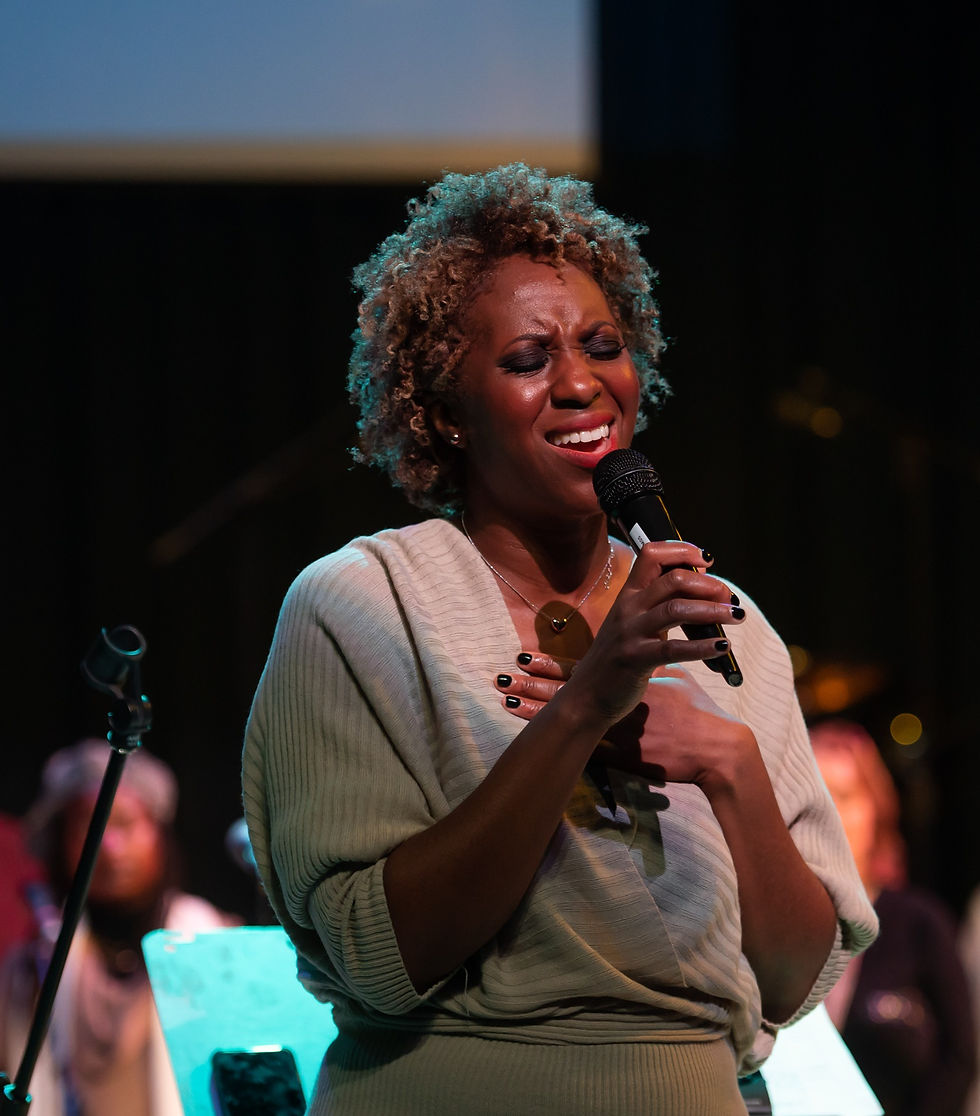LJM Choir relaunch and the History of Gospel Music Project
- Anita N. Kuambana

- Oct 18, 2022
- 2 min read
Updated: Oct 19, 2022

Formed in 1985, Love and Joy Gospel Choir has been involved in key moments in the history of the city of Liverpool, performing at annual services to commemorate the Hillsborough disaster, at the 200 year anniversary of the Abolition of the Transatlantic Slave Trade Act in 2007 and at the City Sings Festival celebrating Liverpool’s year as European Capital of Culture. However, in recent years the choir has been dormant and has not performed since before Covid.

In February 2022, multi award-winning choir director Anu Omideyi relocated to Liverpool to take up a post as Music Director at Liverpool Lighthouse. Her brief was to develop a National Gospel Music Centre at Liverpool Lighthouse and as part of that role she took up the challenge of revitalising the Love and Joy Gospel Choir.

The choir performed at their first event on Sunday, the LJM International Festival, which featured an outdoor fayre, an international feast and entertainment from across the globe. They are now available to book for events and services.

As well as supporting the development of gospel music artists in the city, Anu will be working on a project, led by the Gospel Music Industry Association (GMIA) in partnership with Liverpool Lighthouse, to collate, curate and celebrate the history of gospel music in the UK.
Gospel music is an artform rooted in black culture and history. It heavily influences the development of modern music, but its role is not well understood or appreciated. GMIA are seeking to create a heritage project, including a Hall of Fame, to preserve material that document the history of gospel music and to share this vibrant and important cultural history with a wider audience.
As part of this project, Anu will also be working in partnership with Resonate Music Hub to get gospel music into schools. The Gospel Music in Schools project aims to introduce gospel music, its rich history and origins in black experience and culture and its impact on modern music into schools, initially in Liverpool and eventually integrated as part of the National Curriculum

Comments